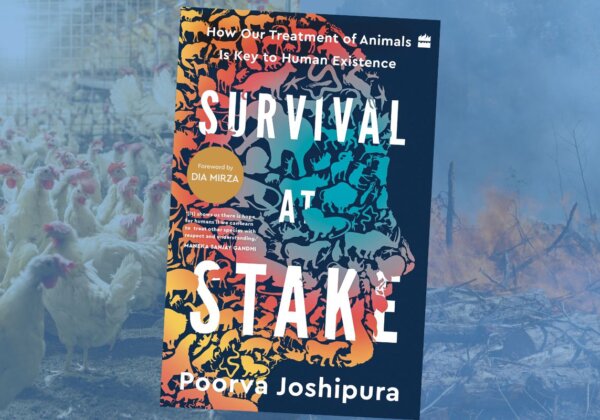World Vegan Month Is Not (Just) About Food
Happy World Vegan Month!
Throughout November, you’re likely to see a raft of new plant-based foods in supermarkets. Vegan chocolates, bacon, burgers, dairy, and donuts – supermarkets nowadays are brimming with cruelty-free upgrades to almost every food you can imagine. But as PETA’s Emily Rice points out in today’s The Canberra Times, being vegan is a lifestyle that seeks to reduce one’s contribution to animal suffering in all aspects of life. She writes:
“As wonderful as it is to see more people reaching for vegan food, it’s time to expand our compassion to animals who are used for clothing, exploited for entertainment, and abused in experimentation.
The fashion industry is slowly evolving to reflect the fact that animals’ skins are not fabrics. Luxury labels like Vivienne Westwood and Burberry have moved past using the skins of snakes, crocodiles, and lizards, while iconic Australian fashion label Zhivago (whose creations routinely grace red carpets globally), is completely animal-free. Still, there’s a long way to go before animals are no longer erroneously considered “ours to wear”.
As for entertainment, it’s heartening that more and more people are refusing to fund attractions that keep whales, dolphins, elephants, and other wild animals in tanks or behind bars and that an increasing number of travel providers are ending ticket sales to attractions that exploit them in these ways. Close to home, the Melbourne Cup has seen countless sponsors, performers, and punters withdraw support over horse deaths in racing – seven in the past decade. But there’s still work to be done. Animal-based entertainment continues, whether it be the torment of bulls at a rodeo in a small outback town or the imprisonment of bottlenose dolphins and orcas at a city marine park.
Meanwhile, when it comes to animals used in science, we have an even longer road to hoe. In 2020, Australia announced the Industrial Chemicals Bill, which, while promising, hasn’t, as many consumers felt led to believe, freed animals from experimentation. Far from being a blanket ban on animal testing, the bill allows for ingredients to be tested on them, which means rats may still have been force-fed your shampoo and pregnant rabbits may have been dosed with your face cream to see whether their newborns would be deformed.
Behind other closed doors, several Australian universities still perform the cruel and scientifically flawed forced swim test, in which mice and other small animals are compelled to desperately tread water inside beakers for fear of drowning.
It’s true that animals aren’t ingredients. The wonderful growth of the vegan food market, which has attracted investors like Bill Gates, Leonardo DiCaprio, and Jeff Bezos, is testament to this. But now, as the damage of the animal agriculture–accelerated climate catastrophe grows by the day, it’s time we realised that animals aren’t “objects”, period. They are sentient individuals, each conscious of their own existence and seeking to enjoy their one precious life in freedom. The dog or cat who’s perhaps curled up beside you as you read this is no different from – nor less deserving of respect than – the crocodile who languishes in a filthy Northern Territory concrete pit for Hermès or the mouse about to have smoke forced into their lungs in a Sydney research facility.”
– PETA Senior Communications Manager Emily Rice
Want to learn more? Sign our pledge, and throughout World Vegan Month, we’ll send you tips on choosing vegan clothes and cruelty-free cosmetics and implementing animal-friendly choices in every aspect of your life, including how to eat a balanced vegan diet.







